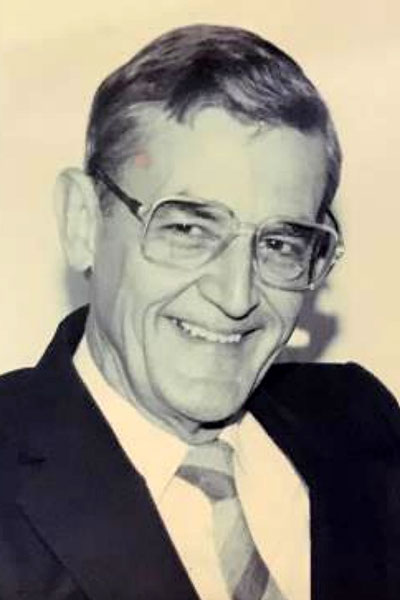
Dr David Cooper
Former Royal Women’s Hospital (RWH) Medical Superintendent Dr David Cooper passed away recently. Dr Cooper was a loved and respected member of the RBWH family and will be missed by many.
Dr Cooper worked at the RWH between 1967 and 1974 and is fondly known as the “father of ultrasound”. He made a major contribution to obstetrics in Queensland by pioneering fetal diagnosis equipment.
During his time at the hospital, Dr Cooper oversaw important structural changes including the introduction of an airconditioned nursery and labour wards, an additional theatre and the employment of a full-time anaesthetist. His improvements in the labour ward included relieving the nursing staff of the responsibility for washing dirty bedding and rubber gloves. He dramatically improved sterilisation standards by setting up a central sterilisation supply, banning the use of reusable syringes and the use of lifters (tongs). He also initiated replacement of the old wire cots with modern acrylic cots which were more hygienic. In later years, a senior consultant stated that he had dragged the Royal Women’s Hospital into the 20th century.
After trying unsuccessfully to interest Queensland obstetricians and radiologists in ultrasound, Dr Cooper developed the field himself. At that time, it was considered that this lack of interest was due to their view that the equipment was primitive and not useful. It was also expensive and required regular updates due to advances in technology. As a result, Dr Cooper did all the ultrasound scanning himself and attended the clinical meetings of the newly formed Australian Society for Ultrasound in Medicine and Biology. In 1967, the first Xray guided intrauterine transfusion in Queensland was conducted by Dr Ken Wilson and, subsequently, a team of three specialists (David Cooper, Eva Popper and Bobbie Bevan) were responsible for this work. This procedure changed from Xray to Ultrasound guidance in the 1970s.
When Dr Cooper resigned at the end of 1974 he was appointed Visiting Specialist in Ultrasound providing a service not only for the Royal Women’s Hospital but also for the Royal Brisbane Hospital which, at the time, had no such facility.
Dr Cooper’s legacy will live on at RBWH. Rest in peace.